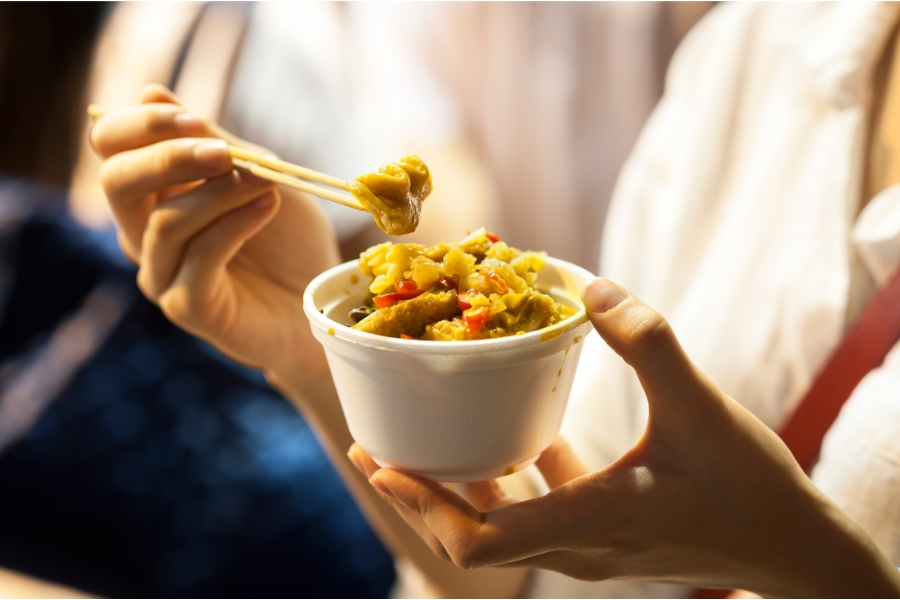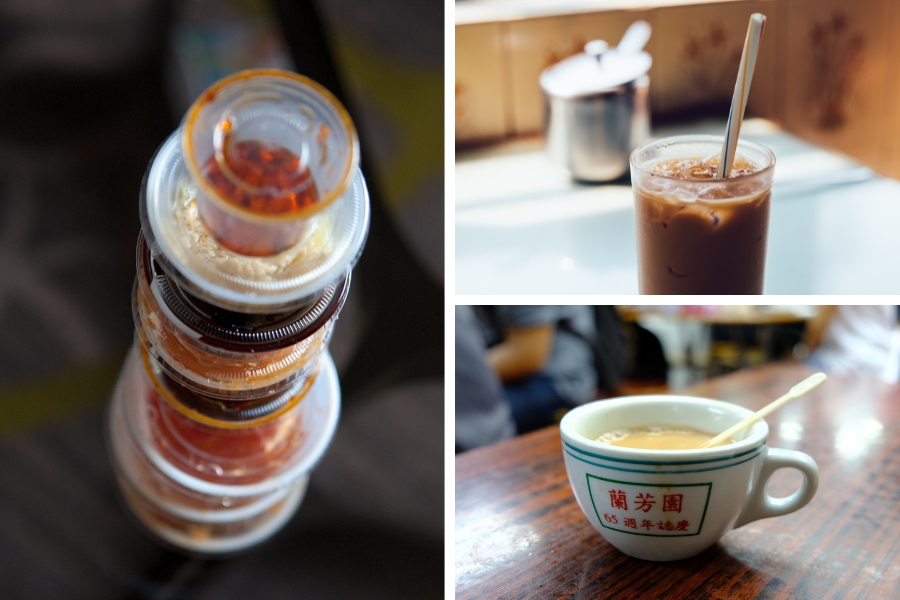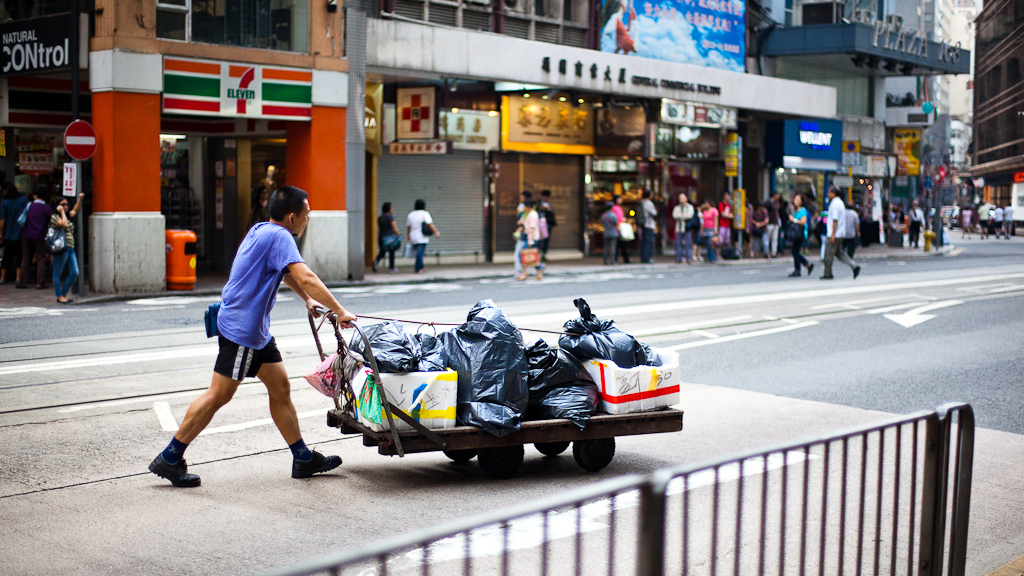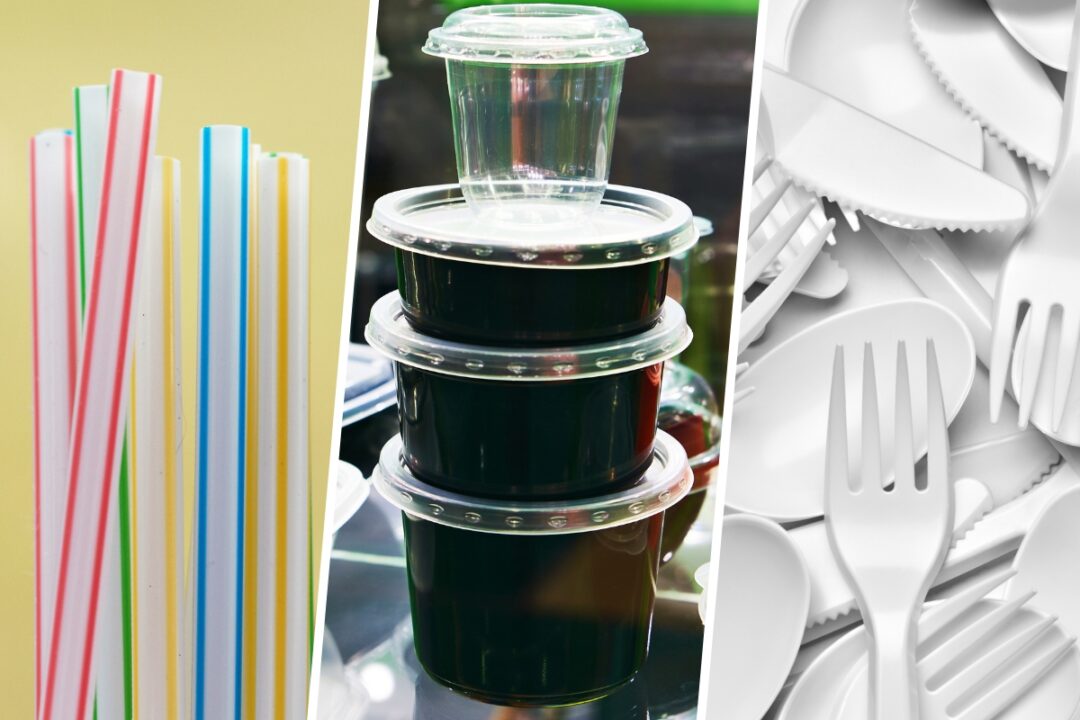Hong Kong’s long-anticipated ban on single-use plastics at restaurants and hotels across the territory will kick off on April 22, 2024, to coincide with World Earth Day. The move came after amendments were made to the Product Eco-Responsibility Bill by the Legislative Council in October 2023. The new restrictions on the use of disposable plastics will cover a wide range of products, such as single-use cutlery for dine-in and takeaway services at restaurants, in-room plastic bottles at hotels, and glow sticks and party hats.
According to official data, plastic is the second-largest contributor to Hong Kong’s municipal solid waste, with 2,369 tonnes per day ending up in landfills. The forthcoming restrictions on the use of throwaway plastics — which will be implemented in two phases — is intended to reduce these figures. Read on to find out what exactly the Hong Kong plastic ban will cover, what the penalties will be, and whether there are any exemptions.
What plastic products does the ban cover in Phase 1?
From April 22, restaurants will no longer be allowed to sell or give out single-use forks, knives, spoons, straws, stirrers, plastic toothpicks, and food sticks to dine-in and takeaway customers. The move will also extend to throwaway plastic cups, cup lids, food containers and their covers — but only for sit-down diners, not patrons who place takeaway orders. The ban also applies to all tableware made out of expanded polystyrene (EPS). In addition, the manufacture, sale, and free distribution of oxo-degradable plastics — usually found in dry-cleaning bags, utensils and compostable plastic bags — will also be prohibited.

In addition, hotels and guest houses can no longer provide complimentary disposable toiletries — think toothbrushes with plastic handles, toothpaste with plastic packaging, shower caps, razors, cotton buds, nail files, and combs. This also applies to throwaway plastic bottles that hotels use for drinking water, shampoo, body wash, conditioners, body lotions, and hand sanitisers. Other items that will come under the ban include items that have non-plastic alternatives, such balloon sticks, inflatable cheer sticks, glow sticks, party hats, and umbrella bags.
Which throwaway plastics will be included in Phase 2?
The date for Phase 2 has not been confirmed, but it will begin sometime in 2025. Once this happens, restaurants will be prohibited from selling or handing out disposable plastic cups, cup lids, food containers and their covers to both dine-in and takeaway customers. Multipack rings for canned drinks, disposable tablecloths, plastic-stemmed dental floss, and ear buds will also not be available once Phase 2 comes into effect next year.
What are the fines and are there any exemptions?
The new regulations only apply to businesses with an online and physical presence, not members of the public. The penalties range from HK$2,000-HK$100,000. However, the first six months is an “adaptation period” during which businesses will not be fined if they violate the new rules, but will be issued warnings instead. The government has requested restaurants across the city to switch to substitutes such as plant fibre or paper as soon as they can, and has set up an online platform for them to source the alternatives they need.

Both sit-down and takeaway diners will still get plastic cutlery and utensils if they come as part of pre-packaged food, such as beverages with plastic straws or ice cream cups with plastic spoons. Disposable gloves, straws, and other single-use plastics are also excluded from the ban as long as they are used for medical purposes. Patients and inmates at hospital wards or correctional facilities will be served meals with throwaway cutlery and tableware due to medical and security needs.
How does this differ from the waste-charging scheme?
Hong Kong’s Municipal Solid Waste Charging programme will begin on August 1, and will require all residents and businesses in the city to use prepaid, government-approved trash bags to get rid of their garbage. They must pay HK$0.11 for each litre of garbage they discard in bags that will come in nine different sizes, ranging from 3 litres to 100 litres in capacity and costing HK$0.30-HK$11.

The waste-charging scheme was supposed to begin on April 1, 2024, but was delayed by four months so that the public could get a full understanding of the initiative before it comes into effect. At present, government departments across the city are following the programme on a trial basis.
Header image credits: NoDerog, sergeyryzhov, Milan Radulovic’s Images via Canva




